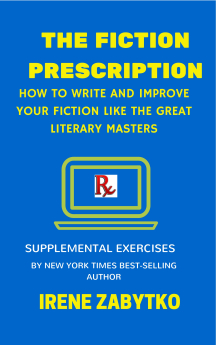MANUSCRIPTS LOST AND FOUND
Photo: cottonbro
I may have mentioned (perhaps too often), that I have been rehabbing my house.
New carpeting, floor tiles and kitchen cabinets were installed, and all the walls painted among other massive construction changes.
Before the contractors came with their measuring tapes and tools, I had to denude the house of all my household items—furniture, appliances and personal things such as my books, and artwork and of course my writings that I hid for years in the bowels of filing cabinets.
There was a major time constraint, so I shoved everything in boxes and bags and deposited it all in storage lockers.
Only now am I slowly returning things from storage to my newly (and unrecognizable) beautified house, and able to go through the many boxes I packed away months ago.
Recently, I explored a cache of boxes filled with my old manuscripts—the ones that were buried and forgotten.
I cringed.
[image error]
Photo: cottonbro
I was reluctant to go through them. I wanted to return the yellowed bundles of typed paper back to their cardboard coffins and forget about all of my, as I called them, “little failures.”
But after a while, my curiosity over took my reluctance.
What did I write and how bad was it really?
There were boxes of many, many early drafts of short stories and novels beginning from when I was a graduate student in creative writing.
Those were of course pretty bad.
And then there were the later years of working on more fiction that for one reason or another did not make it into print or even completion.
Then there was another box—the one I feared opening up the most.
All of my rejections!
[image error]
Photo: Jerzy Górecki
And boy, there were plenty of those to seep through.
I won’t lie—it was depressing to go through the boxes filled with unsuccessful attempts at honing a very difficult art and craft.
It was disheartening to reread the usually terse, robotic responses to the work I had sent out to editors and agents with great hopes and optimism, only to be shattered and dismissed.
[image error]
Graphic: Pete Linforth
Rejections are never easy, and it doesn’t get easier even when time passes.
But once I got over the cringey feelings, I saw that some of the rejection letters were actually helpful in their criticisms and a few even encouraging.
I read them over with more emotional detachment.
Then I plowed on to the old manuscripts I was especially curious over. The ones I had worked on for a long time and nothing came of them.
What was wrong with these stories? Why were they rejected?
And more to the point—are they salvageable?
Many of the manuscripts were written when I was much younger and unrecognizable in the ways I write now.
At least with age comes more experience and I hope, wisdom. And so as I reread the lost manuscripts, I was able to quickly isolate the rookie mistakes in the crafting of the stories.
[image error]
Photo: mohamed Abdelgaffar
I saw how some chapters were so dull that they should be edited out and the rest tightened up.
I zeroed in on the poor meandering dialogues and muddled characters.
I also acknowledged that I was writing in a style that was another writer’s and not really my own.
It actually felt good to face my failures and give it another try. Not all of my little failures will have another chance, but there was some good writing despite the amateurish attempts and I picked out the ones I wanted to rehash again.
[image error]
Image: Marta Kulesza
Maybe I shouldn’t call them failures at all. I should embrace the fact that all of the writing I did were stepping stones to improving and evolving my art.
[image error]
Malcolm Gladwell in his enticing book, OUTLIERS, THE STORY OF SUCCESS mentions something called the “10,000-Hour Rule” which in order to achieve success in anything, that amount of time must be put into the work first.
I’m not sure that’s entirely true. Looking over my boxes of past works, I know I put in more than 10,000 hours.
But after resurrecting a few of the manuscripts and promoting them as possible projects again, I am eager to give it attention, time and maybe another life but with a different and more discerning eye.
And yes it may take another 10,000 hours, but then that’s what writers do, isn’t it?
We are magnetically drawn to our work and if there is a glimmer of possibility that we can once again mold it into something worthy for the world, then we will return like the prodigal souls we are, and give it another try.
Of course, we may be hurt and disillusioned again and again. That’s a given.
But we are also eternal optimists if we truly believe in our work especially when no one else cares.
And we try again.
Writing Wisdom:
“I work hard, I work very hard. All the books at least 30 revisions.”
― Ha Jin, Chinese-American Poet, Novelist
Cheers, Irene
P.S. Need help and inspiration in writing GREAT fiction?
 Find both in my writing guidebook: THE FICTION PRESCRIPTION: HOW TO WRITE AND IMPROVE YOUR FICTION LIKE THE GREAT LITERARY MASTERS.
Find both in my writing guidebook: THE FICTION PRESCRIPTION: HOW TO WRITE AND IMPROVE YOUR FICTION LIKE THE GREAT LITERARY MASTERS.
NEW! Now in paperback: https://amzn.to/2WwRXgE
E-Book: http://amzn.to/211kQhZ
PDF: www.irenezabytko.com P.S. Need help and inspiration in writing GREAT fiction?
Catch my new and public blog posts and AN AMERICAN WRITER IN UKRAINE BLOG SERIES at www.irenezabytko.com and irenezabytko.wordpress
SUBSCRIBE to www.irenezabytko.com for weekly WRITING WISDOM advice.
AND THAT’S NOT ALL!
[image error]
New subscribers will get a free copy of 100 LITERARY CLICHES TO AVOID , SCORN AND DELETE (VOLUME 1). Humorous and helpful! Plus my report on “The 7 Deadly Sins of Rookie Fiction Writers.” www.irenezabytko.com
© 2020 by Irene Zabytko, all rights reserved.



